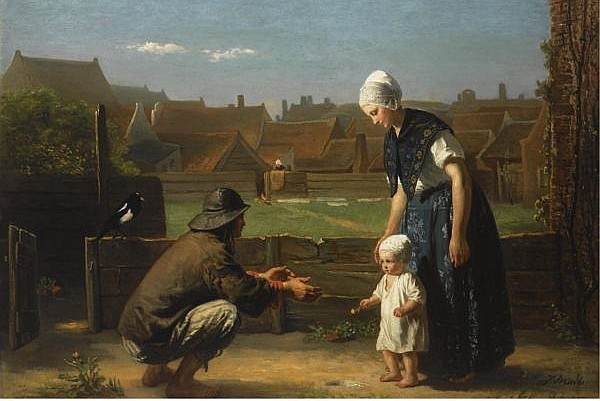“Therefore, it is clear that the care of the household concerns human beings more than material property…”
Aristotle, Politics
“Here Aristotle infers that the chief aim of [parents] concerns these two relationships [with one another, and with their children] more than other things.”
Thomas Aquinas, Commentary on Aristotle’s Politics
We might not be at home for large parts of the day. Sometimes this is beyond our control. But this does not prevent us from putting a primacy on the relationships with the people that live within those four walls.
For Aristotle the immediate ‘chief aim’ of parents is their relationship with one another, and then their relationship with their children. In that order.
This gives great focus, and freedom, to our lives. It’s always first of all about relationships. On the quality of these can I judge myself. Is there any undertaking, anything else I do that more immediately and obviously expresses and determines who I am, than how I relate to my spouse and my children? The point is not that how these relationships go is completely in my control; clearly, it is not.
The issue rather is whether I am doing all that I can, from my side, to foster them, to make these relationships be all they can be from the very start–and with children the relationship really begins the day of conception, and grows from there. I can make these relationships the chief aim of my deliberations about household and my professional life, which latter is always seen in the context of household.
At the end of the day, it’s not that my life is restricted to what goes on in the four walls of my home. I am certainly also called to serve and be present to communities that transcend my home. But that which most immediately is my responsibility, requiring consistent daily attention, is the relationships in the home.
We are tempted to focus elsewhere. These relationships often demand so much, uniquely expose our weaknesses, and provide little recognition or adulation. In them we can feel vulnerable and inadequate.
Yet by investing ourselves in these relationships, every day, here especially will we become ourselves; as will these beloved people, with whom we forge a life together.
Aristotle (384-322 B.C.), student of Plato, tutor of Alexander the Great, has been considered by many to be the greatest ancient philosopher. The Politics is his major political work, in which he includes a consideration of the household.
Image: Jozef Israels (1824-1911), The First Step
Originally posted at Bacon from Acorns





